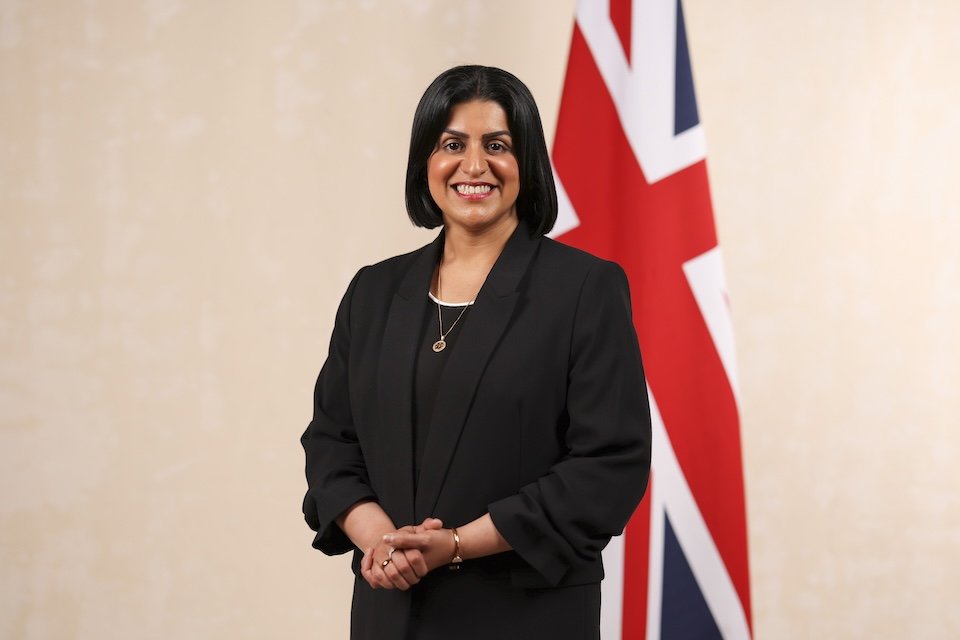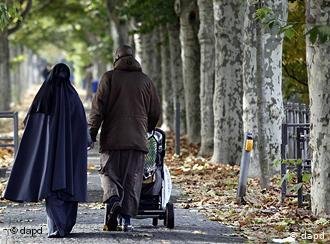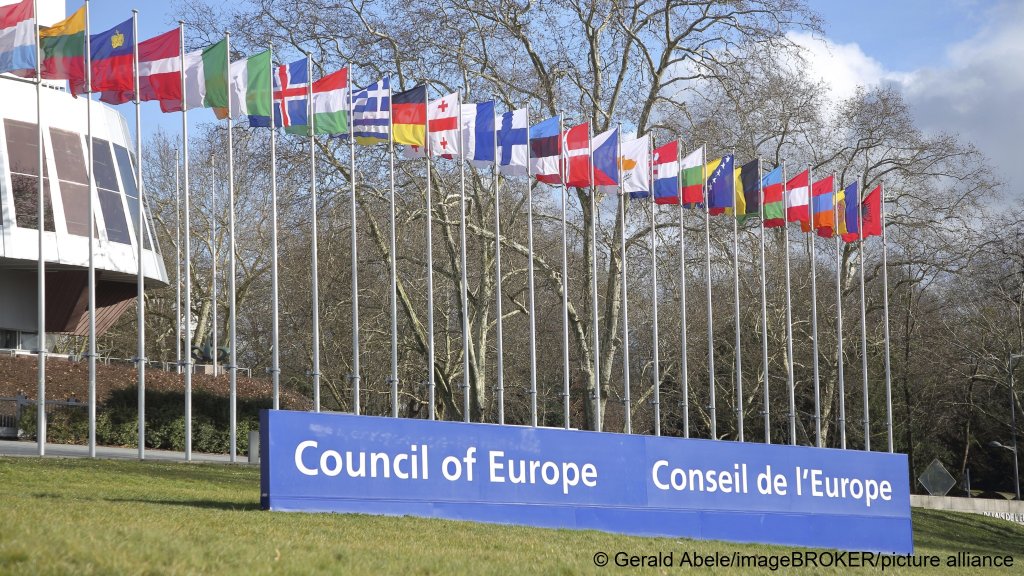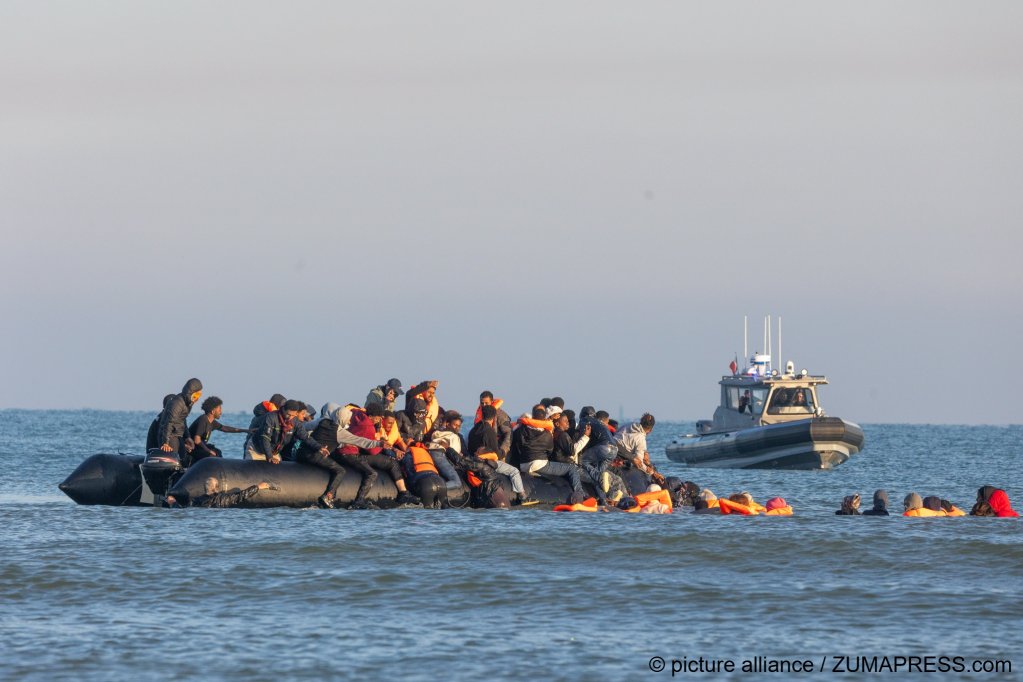British Home Secretary Shabana Mahmood is reportedly planning to announce major changes to the UK’s mmigration and asylum system later this month. Among other things, Mahmood wants to do away with incentives that draw people to come to the UK, while also making it easier to deport those who have no right to be in the country. Parts of the new rules are going to be modelled on the system that Denmark uses, which is seen as one of the toughest immigration systems in Europe.
Home Secretary Shabana Mahmood has promised to "do whatever it takes" to regain control of Britain's borders — a major pledge from the 2015 UK campaign to leave the European Union, which still informs much of both domestic and foreign policy in the country to this day.
While tougher laws are being introduced in Britain on a rolling basis, it would appear that the island nation is also looking outside its own backyard to find inspiration on how to control irregular immigration.
Home Secretary Mahmood announced that she had sent a number of Home Office officials to Denmark to study the Nordic nation's immigration system in recent months, reporting that she was "impressed" that Denmark had managed to push down the number of successful asylum claims to a 40-year low.
The home secretary said that therefore, she was planning to model some of her new measures on the basis of the Danish system, in particular in key areas such as tighter rules on family reunifications and restriction on most legitimate refugees, such as issuing only temporary stay permits. Denmark is governed by a social-democratic led coalition under Mette Frederiksen, and thus also provides a political blueprint for Britain's Labour government.

The announcement about this major shake-up of immigration laws comes as more than 1,700 migrants once more managed to cross the English Channel in small boats over the last few days, according to the latest Home Office figures.
The total number of people who managed to reach the UK by small boat to date this year has surpassed 38,000 — making it far more likely that the number of arrivals this year could breach the mark of 40,000.
Read AlsoChannel crossings: More boats arrive as third migrant returned to France under deal
Britain to follow Denmark's lead
While there are still details to emerge about Mahmood's new approach to immigration and asylum, it is known that many of the changes will target people who succeed with their asylum claims, i.e. genuine and legitimate refugees.
In Denmark, people who have suffered persecution or the effects of conflict in their own country are generally granted protection status; however, this protection is now typically only issued for a limited time frame.
If and when the Danish government decrees that their home country has become safe, such refugees can actually be returned — if they do not choose first to return voluntarily.
For example, Danish lawmakers are currently preparing to discuss the future status of Syrian asylum seekers in the country since the civil war in the Middle East nation officially ended and former President Bashar al-Assad was ousted.

However, since the nature of some conflicts is such that they drag on for many years or even decades, there are limited pathways for regularizing those people's status in the long run.
But even in such cases, there have been changes applied to Danish law, which the UK is soon likely to emulate, such as the fact that the period of time required to be given permanent residency has been extended; certain conditions — such as being in full-time employment — have also been added to the Danish model in recent years.
Family reunification: a tough call in Denmark
Meanwhile, Denmark's tighter rules for family reunification have also piqued the interest of the UK's government:
The Danish government has introduced a series of rules to stop forced and coersive arranged marriages as well as traditional marriages, in which one party to the marriage (typically the woman) might not entirely be acting out of genuine feelings of affection.
To this end, Denmark has enacted laws, which predicate that refugees with residency rights in Denmark must be 24 or older to enter a marriage contract, as does the prospective partner — whether they already reside in Denmark or are sent for from another country.
Furthermore, Danish laws that are likely to be emulated by the UK dictate that if one partner is in Denmark and another one is abroad, the party in Denmark must not have claimed welfare benefits for three years prior to the wedding date.
Both partners also have to pass a Danish language test before being allowed to be granted a marriage license, among other stipulations.
Denmark: 'parallel societies' not allowed
However, Danish family reunification laws not only apply to prospective partners-in-marriage.
One particularly divisive law states that the government and local councils have to do everything in their power to make sure that foreigners living in Denmark do not perpetuate "parallel societies" — which often are simply referred to by using the derogatory term "ghettos" in the Danish press.
To this end, refugees who live in public housing estates which have been designated as such spaces that might be in danger of becoming "parallel societies" are not be eligible for any kind of family reunification at all, including through marriage.
Read AlsoWhy Denmark is clamping down on 'non-Western' residents
By definition, these are areas where more than 50 percent of the residents are from what the Danish government considers to be "non-Western" backgrounds.
The law actually goes as far as allowing Danish authorities to demolish apartment blocks that fall under the "parallel societies" designation — though this rarely occurs.
It is unlikely that the UK would go as far as bulldozing such collective residential areas, as there is a high level of scarcity in both public and private housing in nearly all urban parts of the UK.
Read AlsoBritain plans radical changes to immigration law amid far-right pressure
Family reunification already on hiatus in UK
It is evident that Britain is already copying many of Denmark's interventions; in September this year, the Home Office already suspended the processing and acceptance of new applications under the Refugee Family Reunion scheme, citing a significant backlog of asylum cases as the primary reason.
This suspension will reportedly be lifted once new rules are drafted and made law, which could still take months.
Prior to September, spouses, partners and dependants under the age of 18 were legally allowed to come to the UK for family reunification purposes — without fulfilling any such income requirements or language tests.
Certain requirements — such as proving language proficiency — do already apply to other migrants in the UK.
In the case of employment-based, long-term migrants, there are also financial reassurances that have to be met, such as reaching a certain threshold of income in order for close family members to qualify for reunification — as well as large security deposits for the National Health System (NHS) for those intending to join family in the UK.
Read AlsoUK: Stricter language rules for migrants, but will it encourage integration?
Denmark pays tens of thousands to get people to return home
Denmark's minister for Immigration and Integration Rasmus Stoklund, who is the British home secretary's counterpart, told the BBC that Denmark still wasn't finished with tightening its immigration policies; however, for the time being, the Scandinavian nation is focusing on making sure that its new rules are fully rolled out.
"You will get expelled a lot easier if you commit crimes," he cited as one area, where the application of the new laws was still somwhat catching up to its wording; however, according to the Danish government, nearly 95 percent of rejected asylum seekers have now been deported in the past year alone.
"We expect people who come here to participate and contribute positively and if they don't, they aren't welcome," he added.

Stoklund also added that the Denmark had introduced various "programs to help people go back home voluntarily," offering incentives to migrants who fail their asylum case — or refugees whose asylum status ceases to be valid — to make their way back to their countries of origin.
To this end, the Danish government offers as much as 27,000 euros to people to return home as part of existing voluntary return schemes.
It is unclear at this point, however, whether the UK might be as generous with its incentives to have people return to their home nations.
Read AlsoMake repatriation rules more effective –Denmark takes over EU presidency
After 'Brexit' — 'Den-unite'?
As is the case in the United Kingdom at the moment, there is also a public and political debate raging on in Denmark about the role of the European Convention on Human Rights (ECHR) on national laws — especially those dealing with immigration matters.
Both countries argue that in certain instances, complying with the ECHR makes the deportation of certain foreign nationals not entitled to stay in the country more difficult, including cases that involve criminals.
While neither country says they actually want to exit the ECHR, calls for changes and amendments to adapt to the current immigration landscape are growing increasingly vociferous in both countries.
Stocklund said that joining forces with Britain — and even other European countries — to appeal for a re-examination of how the ECHR is applied could benefit large parts of the continent:
"I think it's very positive every time I hear that other countries have the same concerns and are frustrated the same way as many of us in Denmark are," he told the BBC.

Meanwhile, the opposition in the UK has been using a more belligerent rhetoric when it comes to the part that the ECHR plays; according to Conservative Party leader Kemi Badenoch, the UK could leave the ECHR if her party were to win the next election, which is likely to take place in 2029.
The far-right Reform UK party, which currently is leading in British polls, has also said that it would leave the ECHR treaty if it was given the mandate to form the next government in the name of the King following the next elections.
Read AlsoFact-checking Reform UK's migration policy claims
Council of Europe open to dialogue — and change
The Council of Europe (CoE), which oversees the application and implementation of the ECHR, meanwhile has said it was "absolutely ready" to consider changes to the treaty to address concerns over immigration.
Its secretary general, Alain Berset, said the organization needs to discuss proposed changes and "maybe to change and adapt."
Read AlsoUK: Government calls for reform of European human rights convention to help manage migration
However, he added the there was a growing risk that the UK could be isolated if it were to leave the ECHR, which currently has 46 member states.
A recent survey conducted on behalf of Amnesty International found that 48 percent of Brits believed that the UK should continue to be a member of the convention, while only 26 said decisively that Britain should withdraw and another 26 percent answered that they "don't know."
There are no recent representative poll numbers highlighting support of, or opposition to, the ECHR in Denmark.
Read AlsoCouncil of Europe warns against third-country asylum deals
How similar are Britain and Denmark in the end?
However, there are many critical voices opposing the Home Secretary's approach to immigration, not least in her own Labour Party; in particular, the left-wing of the traditional workers' party have been criticizing Labour's apparent swing to the right under pressure of populist movements — such as Reform UK, led by British anti-migrant firebrand Nigel Farage.
Labour Party MP Clive Lewis told the BBC that the Danish approach to immigration was too "hardcore."
"They've adopted many of the talking points of what we would call the far-right."

Other critics have also pointed out the fact that there are significant differences between the UK and Denmark, including population size — with Britain having more than 11 times the population of Denmark.
Other differences include the fact that while Denmark's language proficiency requirement might serve as a deterrent to many, the UK might fail to use language tests as a deterrent; after all, Britain's main language, English, remains the most widely spoken language on the planet.
Furthermore, while Denmark is largely surrounded by the North Sea and the Baltic Sea, it is not an island like the United Kingdom, and is not facing the ongoing problem of small boat arrivals.
Read AlsoInvestigation examines why Channel crossings remain high despite punitive UK measures
Measures such as tightening controls on family reunifications and introducing more difficult language tests could have some influence on that phenomenon but are unlikely to "stop the boats" from reaching British shores — a campaign promise made by British Prime Minister Keir Starmer which is yet to come to fruition.
Much of Starmer's clampdown on irregular immigration to date, however, has not resulted in any drop in small boat arrivals; instead, his chief measurable improvements in fighting immigration in the 16 months since he took office are largely focused on clamping down on illegal work practices.
